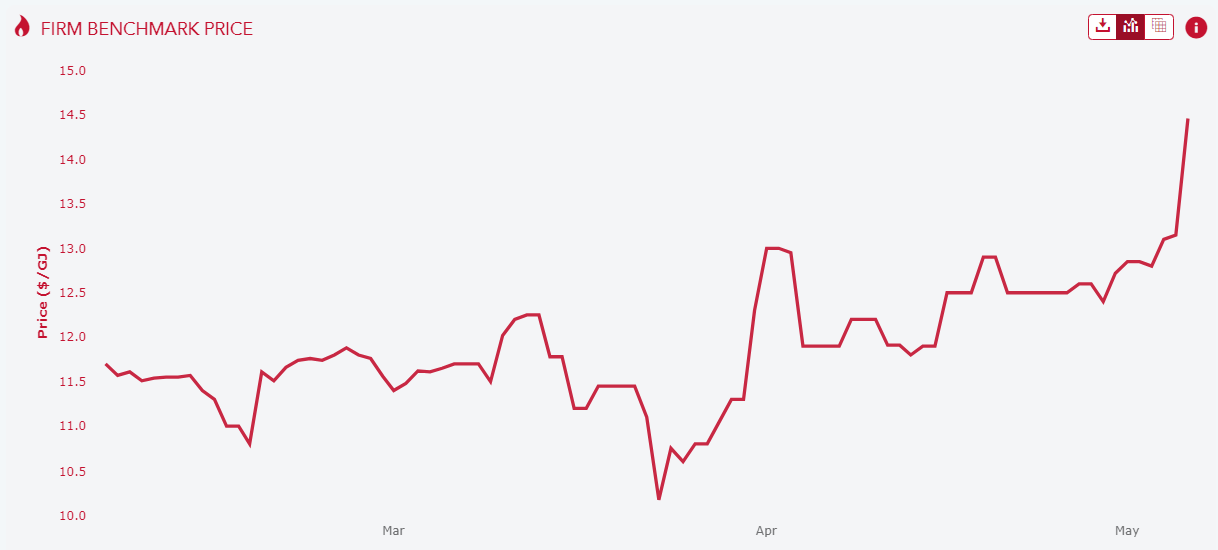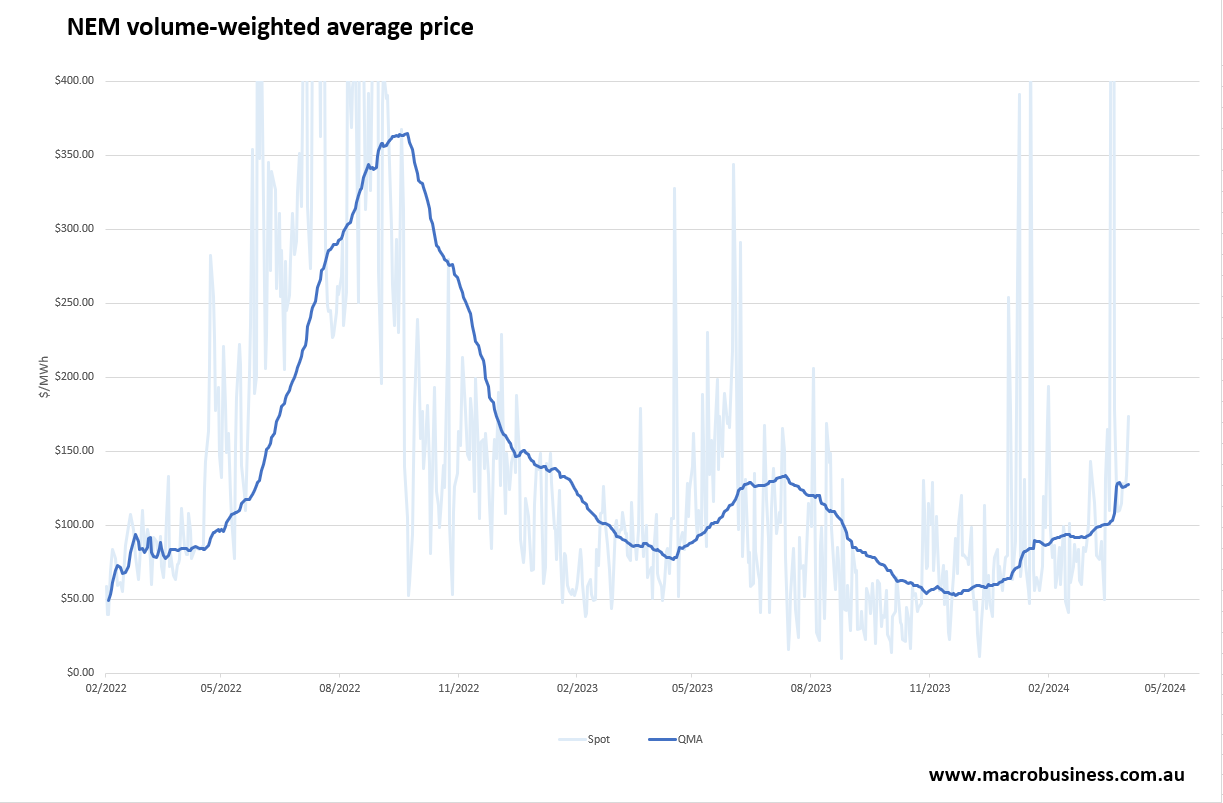A new report from the AEMO paints grim picture for the energy transition and politics.
Electricity users in Victoria and New South Wales are more likely to experience blackouts during summer peak demand due to delays in new transmission lines and renewable energy projects.
The energy market operator is bidding for emergency supplies already.
The deteriorating prognosis is attributed to setbacks, delays in battery, hydrostorage, wind, and solar projects, and South Australia’s shutdown of gas and diesel output.
NSW faces a power reliability gap of over 1000 MW in 2025-2026, expanding to 3000 MW in 2032-2033, highlighting Australia’s challenge of triple renewable capacity to meet Labor’s 82% by 2030.
Daniel Westerman, chief executive of AEMO, “project development and commissioning delays are impacting reliability throughout the horizon, even as new generation and storage capacity continues to increase.”
All but the actual generation we need – gas to act as swift, cheap, firming power.
On the one hand, the gas export cartel has killed the security of the fuel supply, so no gas generator has been built in ten years.
Another price shock is underway today, with spot prices making a mockery of Albo’s $12G contract price cap:

And power costs are following as usual:

On the other hand, The Greens and parts of Labor are killing off gas extraction at the policy level, so Australia will have no access to transitional fuel in the energy transition:
Resources industry, business and union figures slammed the Victorian Labor Party’s vote to oppose the federal government’s gas strategy and warned “reckless ideological games” could put the energy security of millions of people at risk.
Labor’s Victorian branch had placed itself on the wrong side of rational energy policy by labelling the Albanese government’s Future Gas Strategy incompatible with the country’s emissions reduction targets at its annual conference on the weekend, said Peter Kos, the state director of the Australian Energy Producers group.
Over the next thirty years of building out energy storage to replace coal, what will substitute for gas is already obvious.
Relentless price shocks will destroy demand, especially in industry, but also via broader inflation, and taxpayers will covertly support loss-making coal power plants to stay open.

